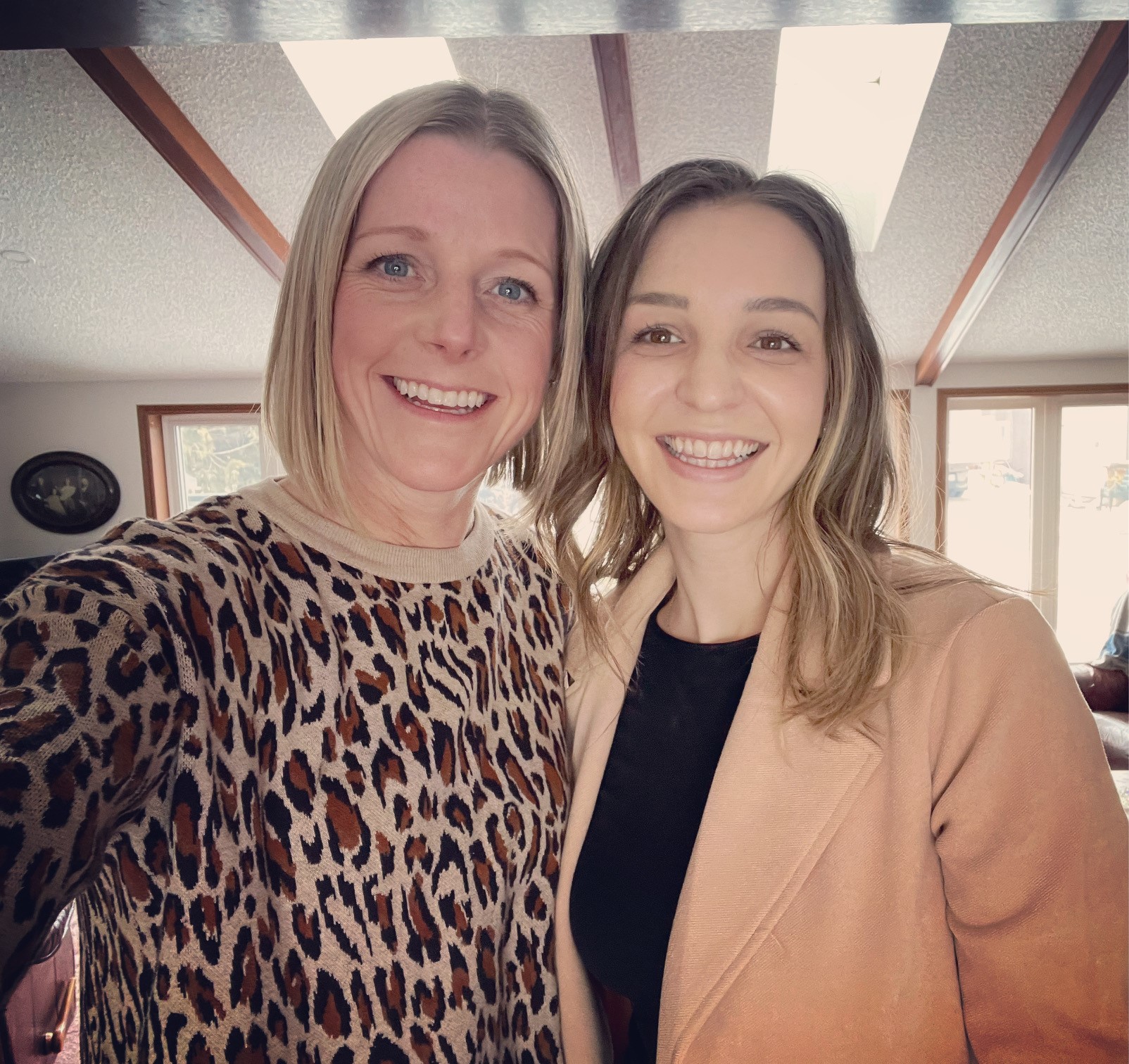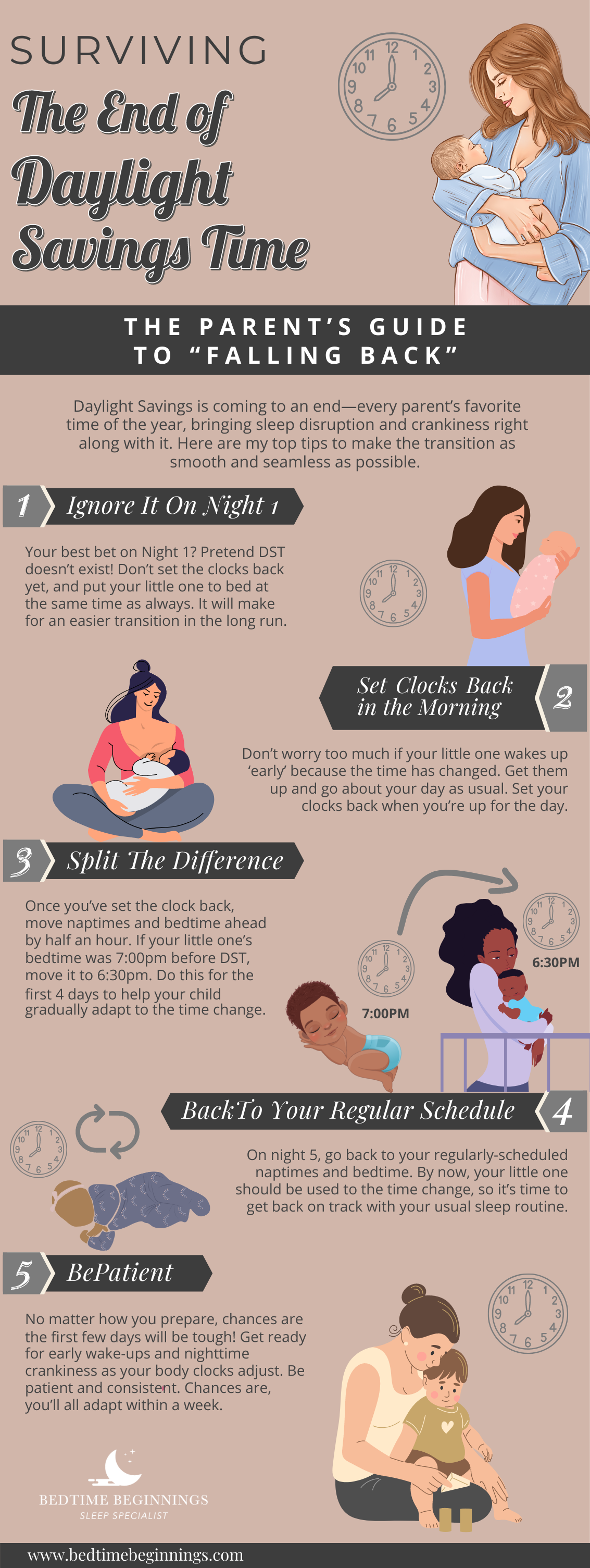 Turning the clock forward or back for Daylight Saving Time will be disruptive to our body clocks. Losing an hour in the spring can leave you feeling tired and groggy for at least a week or two, while the extra hour in the fall may feel like a luxury, but can also be disruptive to your natural body clock. Not to mention the changes in morning light and evening darkness that coincide with the time change will also play a role.
Turning the clock forward or back for Daylight Saving Time will be disruptive to our body clocks. Losing an hour in the spring can leave you feeling tired and groggy for at least a week or two, while the extra hour in the fall may feel like a luxury, but can also be disruptive to your natural body clock. Not to mention the changes in morning light and evening darkness that coincide with the time change will also play a role.
Follow these tips to get through time change sleep disruption so that when morning comes you’re ready to face the day.
Know their Number
Once we reach 6 months of age our body naturally starts to form a schedule, or cycle, of wakeful times and sleep times. Knowing what time, and how much sleep you and your children need is a good place to start in managing this time with ease. *Link to our Document: How much sleep does my baby need?
Tips for School Age Children
If you have a child that does not nap and normally goes to bed at 7:00 p.m., you would put him to bed at 6:30 p.m. on Sunday night, the first night of the time change. Do this for 3 nights, putting him to bed 30 minutes earlier than normal, then on the 4th night put him to bed at the normal time, 7:00 p.m. or whatever is normal bedtime for your child.
Tips for Toddlers
If you have a toddler (ages one and older), on Sunday,
- The first day of the time change, you would put him down for his first nap 30 minutes earlier than normal.
- Eg. if he naps usually at 1:00 p.m. put him down at 12:30 p.m.
- For bedtime, if his normal bedtime is 7:00 p.m., you would put him down at 6:30 p.m.
- Do this for 3 nights after the time change and then on the 4th night, put him to bed at 7:00 p.m.
- On the 5th day move naptimes back to normal time. So, if your child naps at 1:00 p.m. put him down at 1:00 p.m. and so on, only changing the timing if your child is too tired and still needs an earlier bedtime.
Tips for Infants
If you have a baby and his bedtime and naps have become predictable (usually over 6 months old), meaning he is always going to bed around the same time each day, follow these steps after DLS:
- If bedtime is normally 7:00 p.m. move bedtime 15 minutes later each night or two, until you reach the normal time again.
- So the first night you would put him down at 6:15 p.m., the second night 6:30 p.m., and so on.
- By the 4th to 7th night you should be back to his normal time.
- Do the same thing for naps. Start 45 minutes earlier than normal and move them 15 minutes later each day.
- So if morning nap is at 9:00 a.m. normally, start with 8:15 a.m. on Sunday, 8:30 a.m. on Monday, 8:45 a.m. on Tuesday and then 9:00 a.m. on Wednesday, or as it makes sense unil you are back on schedule.
- Do the same for the afternoon nap.
If their bedtime and naptimes are not predictable (0-6 months old) simply jump to the new time Sunday night as if you were traveling to a new time zone and use their wake time window (awake time between sleep periods) as your guide.
A great thing about this time change is that there are more hours of darkness, which helps make this transition a little easier. If your child wakes up too early, walk them back to their room and tell them it’s not time to get up yet. If your child wakes up too early and is in a crib, be sure to help his body understand it isn’t morning time by keeping him in his crib in the dark room until normal wake time.
TODDLER TIP: If you have a toddler or an older child who relies on a clock to know when their “morning time” has arrived, set the clock one half hour ahead of the new time so that it reads 7:00 a.m. at the new time of 6:30 a.m. Allow your child to wake a bit earlier than normal (they will think it is 7:00 according to the clock but it will be 6:30 a.m., new time). This will only be temporary as your child adjusts to wake at their usual 7:00 a.m. time after about one or two weeks.
It may take children and babies a bit more time to fall asleep, this is normal, since the time is different initially they might seem tired earlier. It usually takes about a week for children and babies to completely adjust to the new time, some children it can take up to a month. Be patient and stay very consistent, it will happen.
Tips for Us Adults
In the fall, when you gain a precious hour, you will most likely not feel tired at your normal 10:00 P.M. because it’s actually only going to feel like 9:00 to your body clock.
Again, we need to ease into this change because we still only have the same number of hours to sleep. In this case we are going to get ourselves to bed by 10:30 which will be 30 min earlier than you normally would, but shouldn’t have too much of an impact if you’ve honoured your bedtime routine.
On the 4th night, return to your normal bedtime of 10:00 pm.
Wake up at the same time each morning. Chances are you’ll wake up an hour earlier then you’d like as that is where your body clock is set. If you feel like getting up, then do so. It’s actually better to just get up then try to force yourself back to sleep for an hour. This will most likely mean you’ll be waking up before the end of a full sleep cycle and you’ll feel even groggier then you would if you just got up.
Just remember that body clocks take time to adjust. Even small changes like this will take a week or two to get use to, so be patient with your body and know that if you keep to all your great sleep hygiene and don’t fall back into old habits, you’ll be doing just fine in no time.
Bedtime Beginnings is a team of Pediatric & Adult Sleep Consultants from Southwestern Ontario, Canada. We help exhausted parents teach their infants & toddlers to sleep well every night with gentle, customized solutions and both group and private coaching options, so your family can all be at their best. Our team can support families in home and also virtually around the globe to ensure everyone is sleeping their best.
Follow us on Instagram for more tips to help you and your family get back to sleeping well each night, you deserve it.
If you haven’t been sleeping well please reach out for a friendly no-obligation phone call to help you and your family get back the rest you deserve.


